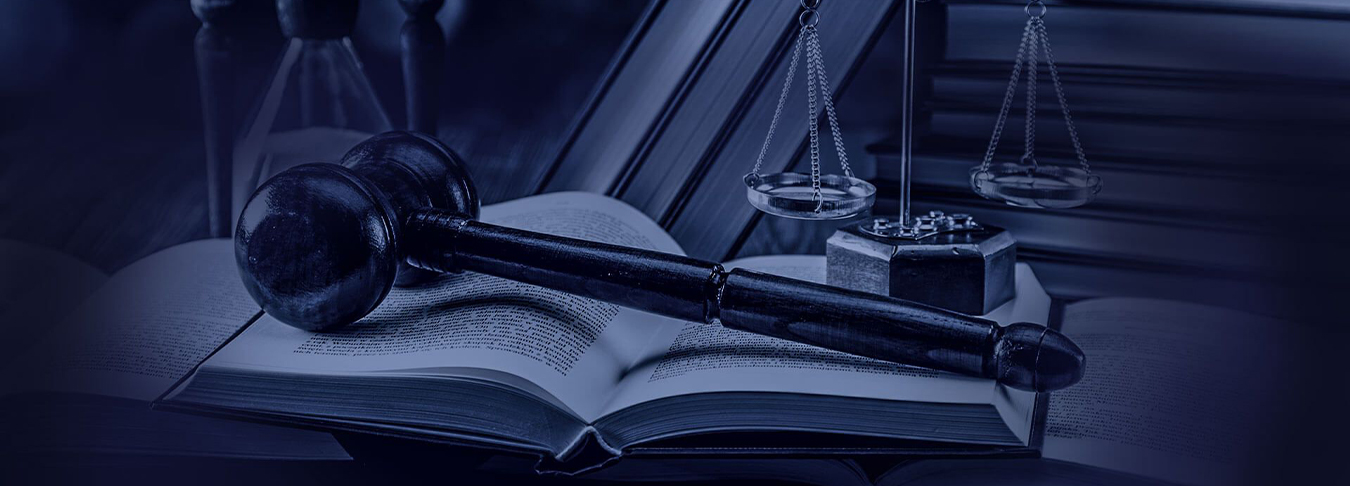

The UAE New Bankruptcy Law Resolves Debtors’ Financial Distresses
The UAE New Bankruptcy Law Resolves Debtors’ Financial Distresses
United Arab Emirates enacted Federal Decree Law No. 51 of 2023 on Financial Restructuring and Bankruptcy (the “New Bankruptcy Law”). The New Bankruptcy Law replaced Federal Decree Law No. 9 of 2016 on Bankruptcy and has come into force from May 1, 2024.
The New Bankruptcy Law aims at preserving the stability of the national economy, protect rights of creditors and helping debtors to maintain their business to the extent possible, while improving the restructuring and bankruptcy proceedings in the UAE.
The New Bankruptcy Law shall apply to companies subject to the Commercial Companies Law, natural persons having the capacity of a trader and licensed civil company of a professional nature, whereas it will not apply to companies wholly or partially owned by the federal or local government, free zones companies as well as financial institutions and insurance companies that have their own legislations.
According to the New Bankruptcy Law, special courts will be established to adjudicate on bankruptcy applications and shall be referred to as the bankruptcy courts (“Bankruptcy Courts”) which may seek the assistance of a sufficient number of experts and auditors. The Bankruptcy Courts shall establish Bankruptcy Department to carry out certain tasks including receiving and registering the applications under this legislation. Further, the Bankruptcy Courts will be supported by the Bankruptcy Unit that will assists them with administrative matters such as maintaining a bankruptcy register and vetting documents filed by debtors at court to ensure they comply with procedural requirements.
Judgments rendered by the Bankruptcy Courts shall be writs of execution and become immediately enforceable once rendered with no need to be served. The New Bankruptcy Law stated that the bankruptcy related procedures such as submission of applications and service of notices may be carried out through modern technology.
The debtor may submit to the Bankruptcy Department an application for the initiation of preventive settlement, or bankruptcy proceedings when it becomes aware that it would be unable to pay off its debts when they fall due. Further, ordinary creditor or a group of ordinary creditors may submit an application to initiate Bankruptcy Proceedings in the event that the debtor defaults on any or more debts owed to them. Also a regulatory authority may submit an application to initiate proceedings regarding any debtor supervised thereby. If multiple applications are submitted regarding the debts of the same debtor, they shall all be combined, and a single action shall be taken regarding them altogether. The Bankruptcy Department shall notify the debtor of the application, and the debtor has to provide its response to the application within a certain period of time.
Except for the applications submitted by regulatory authorities, the applicant shall deposit with the court treasury a sum of money or a bank guarantee, to cover the expenses and costs of the initial proceedings for deciding on the application.
Furthermore, the issuance of the decision to open preventive settlement procedures shall result in the claims suspension for three months following the date of issuance of the decision. The Bankruptcy Court may, upon the debtor’s request, extend the claims suspension period for one or more times, provided that it does not exceed one month, and in all events, the claims suspension period shall not exceed six months. The Bankruptcy Department shall, upon the debtor’s request, provide it with a certificate of claims suspension and the duration thereof. During the claims suspension period, the debtor shall exercise the necessary due diligence to ensure that its creditors vote to approve the preventive settlement proposal. It shall also provide the creditors with all documents, information, and data that will enable them to decide on the preventive settlement proposal and shall respond to any inquiries submitted to it by creditors. However, such claims suspension period shall come to an end if the Bankruptcy Court ratifies the preventive settlement proposal, issuance of a decision by the Bankruptcy Court to terminate preventive settlement proceedings or upon the expiration of the period stipulated in Clause (1) of Article (59) of the New Bankruptcy Law.
For the existing bankruptcy cases, the New Bankruptcy Law provided for that the Bankruptcy Court shall on its own and without fees, transfer all claims, legal proceedings, grievances and actions, which are currently pending before them and are arising out of Federal Decree-Law No. (9) of 2016 (as amended), to the Bankruptcy Court in whatever condition they presently exist, as of the date on which the New Bankruptcy Law enters into force. However, this will not apply to legal proceedings and actions that are already adjudicated or those set for pronouncement of judgment or ruling, so that the judgments or rulings rendered in respect thereof shall continue to be subject to the rules regulating the means of challenge that are applicable on their date of issuance. Also, the New Bankruptcy Law provided for that Federal Decree-Law No. (9) of 2016 on Bankruptcy, as amended, shall be repealed and any provision that goes against or conflicts with the provisions of the New Bankruptcy Law shall be cancelled. However, the regulations and resolutions issued in implementation of the provisions of Federal Decree-Law No. (9) of 2016 shall remain in full force until their substitute regulations are issued yet to such extent that does not conflict with the New Bankruptcy Law.
The New Bankruptcy Law also tackled certain conditions related to the death, retirement or loss of capacity of the debtor, that an application to initiate bankruptcy proceedings may be submitted after the death of the debtor, its retirement from trade or its loss of capacity within the two years following the death or the removal of the trader’s name from the commercial register or its loss of capacity.
The New Bankruptcy Law provided for that a debtor may apply for starting the preventive settlement proceedings if its business is vulnerable, and it may, after the issuance of a decision to start the preventive settlement proceedings, continue to manage its BUSINESS unless the Bankruptcy Court decides otherwise. The issuance of a decision to initiate preventive settlement proceedings shall result in the suspension of claims for a period of (3) three months following the date of issuance of the decision. However, such claims suspension period shall come to an end in certain cases.
A debtor shall file a copy of the preventive settlement proposal with the Bankruptcy Department, along with a summary of the proposal, within (3) three months following the date of issuance of the decision to initiate the proceedings. In the event of accepting the debtor’s request to initiate preventive settlement, the bankruptcy court may grant the debtor’s permission to obtain new financing, with or without collateral, under certain conditions.
The settlement proposal may be based on the debtor’s assignment of part of its property in consideration of the settlement of its debts, in whole or in part, in order to pay off all debtor’s debts in kind or in cash or pay off part thereof in kind or in cash and to be discharged of the rest or get the remainders deferred in a manner that the debtor becomes absolved from the debt or part thereof. The right to vote on the preventive settlement proposal shall be limited to ordinary creditors whose debts are finally approved. The preventive settlement proposal shall be deemed approved by the creditors when it is approved by the required majority. Any of the creditors may, who did not vote for the approval of the preventive settlement proposal, file a grievance against the creditor’s decision to approve the preventive settlement proposal.
The Bankruptcy Court may, based on a motion submitted thereto by any of the creditors during the period following the decision to ratify the preventive settlement proposal and before the proposal is fully executed, terminate the preventive settlement proceedings, in certain cases which amongst is if a criminal case has been filed against the debtor for any of the crimes stipulated in the New Bankruptcy Law.
The Bankruptcy Court shall issue its decision to initiate bankruptcy proceedings if the debtor has become unable to repay its debts, if there is a deficit in the debtor’s financial position, and if the debtor’s business is not viable. After the issuance of the decision to initiate bankruptcy proceedings, no case may be filed against the debtor or proceed, except in certain events such as claims concerning the assets and dispositions not included in the matters of which the debtor is prevented from disposing.
It is worth mentioning that under the New Bankruptcy Law, if the debtor, before the bankruptcy declaration judgment becomes final, becomes able to repay all the debts owed thereby, the Court of Appeal may, upon motion of the debtor or the Trustee, grant the debtor a time limit to reach a settlement with its creditors or halt the appeal for the period it deems appropriate. If a settlement is agreed upon, it shall be submitted to the court for approval and cancellation of the bankruptcy judgment, provided that the debtor bears the expenses of the case.
According to the New Bankruptcy Law, judgments passed by the Bankruptcy Court may be appealed before the Court of Appeal, not later than thirty (30) days from the date of issuance of the judgment.
Any interested party may file a grievance before the Bankruptcy Court when the debtor or trustee if they commit any of the actions outlined in the New Bankruptcy Law or if the Bankruptcy Department fails to perform any of its obligations stipulated in the New Bankruptcy Law. The grievance shall be submitted not later than (10) ten days from the date of the Grievant’s knowledge of the aggrieved incident. However, the grievance shall not entail the suspension of the proceedings unless the Bankruptcy Court decides otherwise.
The Bankruptcy Court may request the Grievant to provide an in-kind or bank guarantee issued by any of the banks operating in the State, or any other guarantee it decides, to guarantee any damage that may occur as a result of suspension of the proceedings. Nevertheless, the Grievant shall recover the guarantee if the grievance is decided in its favor.
The New Bankruptcy Law also refers to the liability of directors, managers, and liquidator for company’s Debts. If a company is declared bankrupt, the Bankruptcy Courts may oblige the members of the board of directors, the managers, and any person responsible for the actual management of the company , to pay an amount proportional to the default attributed to the person concerned, which will be used to repay the company’s debts if it is proven that any of them committed any of the acts outlined in article 246 of the New Bankruptcy Law during the two years preceding the company’s cessation of payment. Such liability shall not be inflicted on the relevant individual if he was able to evidence that he made the necessary reservations on the acts outlined under the said article.



